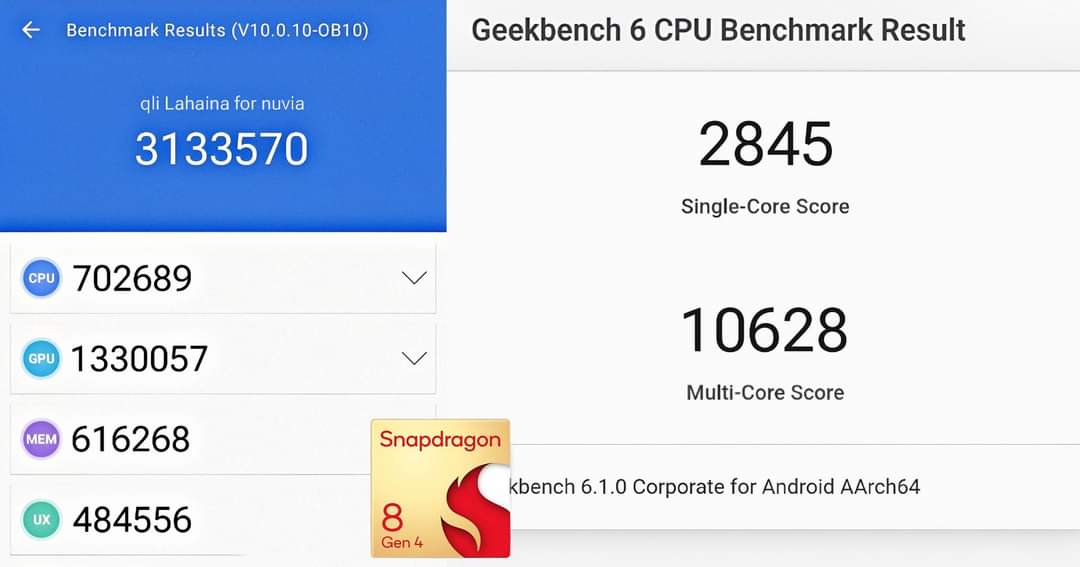First Snapdragon 8 Gen 4 Benchmark Scores Easily Outperform Apple’s A17 Pro in Multi-Core, Inches Closer in Single-Core
Geekbench and AnTuTu benchmarks for Android's 2025 flagship SoC are out, but there's a silver lining!

Qualcomm’s flagship mobile SoC for 2025 has already been pictured in the first benchmark scores, giving us a pretty good idea of where the performance numbers lie for this chipset. The Snapdragon 8 Gen 4 is rumored to come with a new architecture, switching up the CPU configuration and shifting from ARM Cortex to Qualcomm’s custom Nuvia cores.
Snapdragon 8 Gen 4 Crosses 3 Million in Initial AnTuTu Benchmark Results, 70% Better than Last Year’s Snapdragon 8 Gen 3
The first Geekbench scores for the Snapdragon 8 Gen 4 have been released, courtesy of @negativeonehero on X, and they are pretty interesting but unconvincingly odd too. The SoC is shown to cross the 3 million point mark on AnTuTu, a first for any chipset. It scored 3,133,570, although there is a silver lining here.

From the image alone, it appears that both the scores and the image have been forged, as indicated by inconsistencies in the font size and color palette. However, aside from that observation, it is difficult to look at such a substantial generational upgrade, especially considering that the Snapdragon 8 Gen 3 barely surpassed 2.1 million points on AnTuTu.
While the switch from Cortex may lead to higher raw performance numbers, it is important to consider the potential increase in thermals, particularly given the absence of E-cores next year.
Qualcomm Closes in the Gap to Reach the Top, Partially Lags Behind in SIngle-Core But Shows Huge Improvement over Last Year
The leaker also shared Geekbench 6 scores for the SoC, where the Snapdragon 8 Gen 4 scored 2,845 on single-core and 10,628 on multi-core. The scores here again show significant improvement over its predecessor: 25% improvement in single-core, and 52% better in multi core.
For a bit of comparison, these scores signify a performance leap in multi-cores, primarily because Qualcomm opted for two big cores instead of one and completely eliminated low-power efficiency cores. It remains to be seen how the chipset manages to maintain its thermal efficiency, but for now, it seems to significantly outperform Apple’s A17 Pro in multi-core scores. Keep in mind that Apple will also release its next-gen SoC later this year.
This is all we know for now, but rest assured that we will keep you updated as new information becomes available.
via: Nguyen Phi Hung


